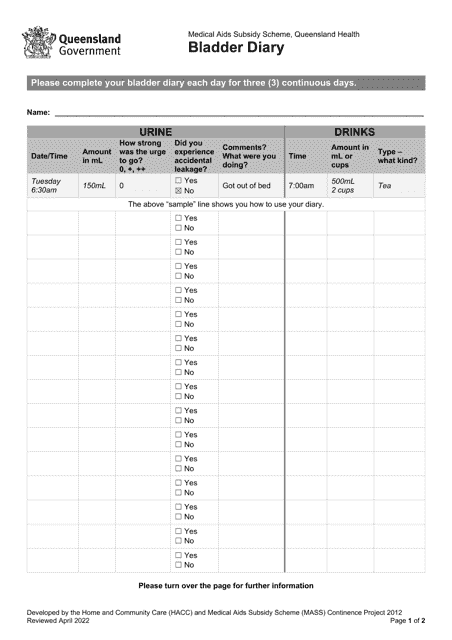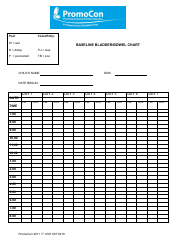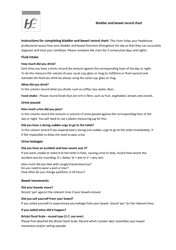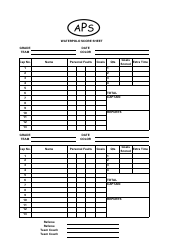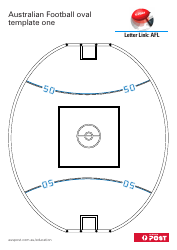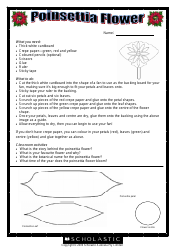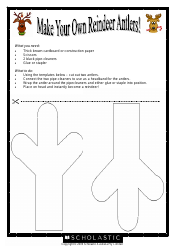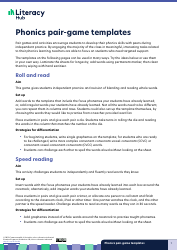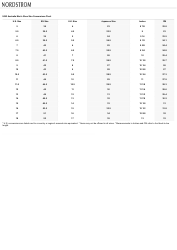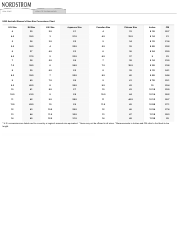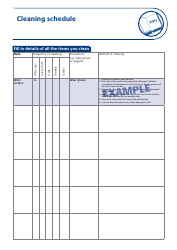Bladder Diary - Queensland, Australia
The Bladder Diary in Queensland, Australia is a tool used to track and monitor a person's urinary habits and bladder function. It allows individuals to record important details about their urinary patterns, including frequency of urination, volume of urine voided, and any associated symptoms or triggers. This information can help healthcare professionals assess and diagnose bladder-related conditions, such as urinary incontinence or overactive bladder, and can guide the development of personalized treatment plans.
In Queensland, Australia, the responsibility for filing a bladder diary typically lies with the individual who is experiencing bladder-related issues. It is primarily used as a tool for recording and tracking information about one's bladder habits, such as the frequency of urination, fluid intake, and other relevant details. By maintaining a bladder diary, individuals can provide valuable information to healthcare professionals or specialists who can then assess the situation and provide appropriate guidance or treatment. It is important to note that while not mandatory, keeping a bladder diary can help in diagnosing and managing certain bladder conditions.
FAQ
Q: What is a bladder diary?
A: A bladder diary is a tool used to track and record your bladder habits, such as the frequency of urination and the amount of fluids consumed, as well as any urinary symptoms or episodes of incontinence.
Q: Why would I need to keep a bladder diary?
A: Keeping a bladder diary can help your healthcare provider better understand your urinary patterns and symptoms. It can provide valuable information to help diagnose any potential bladder issues or disorders and guide the development of an appropriate treatment plan.
Q: How do I keep a bladder diary?
A: To keep a bladder diary, you simply record certain information throughout the day. This may include the time you void (urinate), the volume of urine produced, any instances of urgency or leakage, the amount and timing of fluid intake, and any other relevant details about your urinary habits.
Q: How long should I keep a bladder diary for?
A: It is typically recommended to keep a bladder diary for a minimum of three to seven days. This duration allows for a comprehensive assessment of your bladder habits and patterns. However, your healthcare provider may provide specific instructions based on your individual needs.
Q: What can I learn from my bladder diary?
A: By analyzing your bladder diary, your healthcare provider can identify patterns and possible triggers for symptoms such as frequent urination, urinary urgency, nocturia (waking up at night to urinate), or incontinence. This information can aid in diagnosing and managing your urinary condition.
Q: Can a bladder diary help with my treatment?
A: Yes, a bladder diary can be a valuable tool in guiding your treatment plan. By identifying patterns and triggers for your urinary symptoms, your healthcare provider can tailor interventions such as lifestyle modifications, medication, or behavioral techniques to help manage and improve your bladder health.
Q: Is there any specific format for a bladder diary?
A: There is no strict format for a bladder diary. It can be recorded on paper, in a journal, or using smartphone apps specifically designed for this purpose. Your healthcare provider may provide you with a template or recommend an app to make it easier for you to document your bladder habits.
Q: Can I share my bladder diary with my healthcare provider?
A: Absolutely! In fact, it is highly recommended to share your bladder diary with your healthcare provider. They can review the information you provide and use it as a basis for diagnosing and developing an appropriate treatment plan tailored to your specific bladder health needs.
Q: Can a bladder diary be useful for both men and women?
A: Yes, a bladder diary can be beneficial for both men and women. It can help identify urinary issues or conditions that affect both genders, such as overactive bladder, urinary tract infections, or urinary incontinence.
Q: Can a bladder diary help diagnose bladder conditions?
A: Yes, a bladder diary is a helpful tool in diagnosing bladder conditions. It provides valuable information about your urinary habits, symptoms, and triggers, which can assist your healthcare provider in making an accurate diagnosis and recommending appropriate treatment options.
